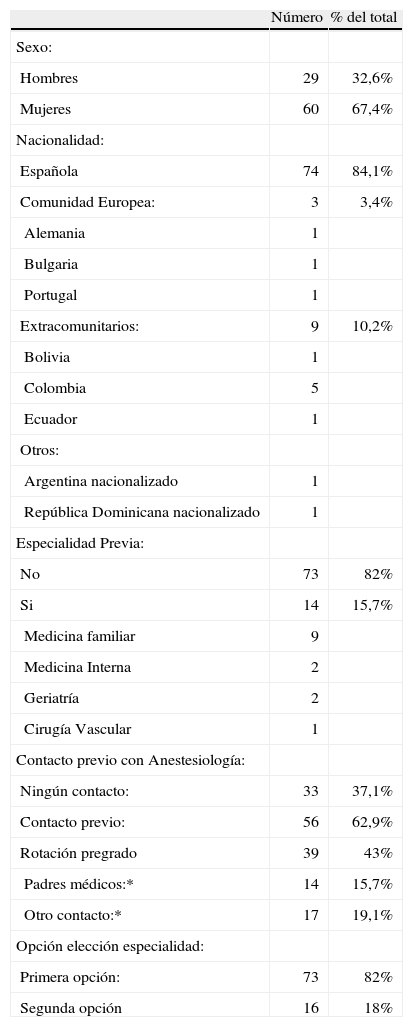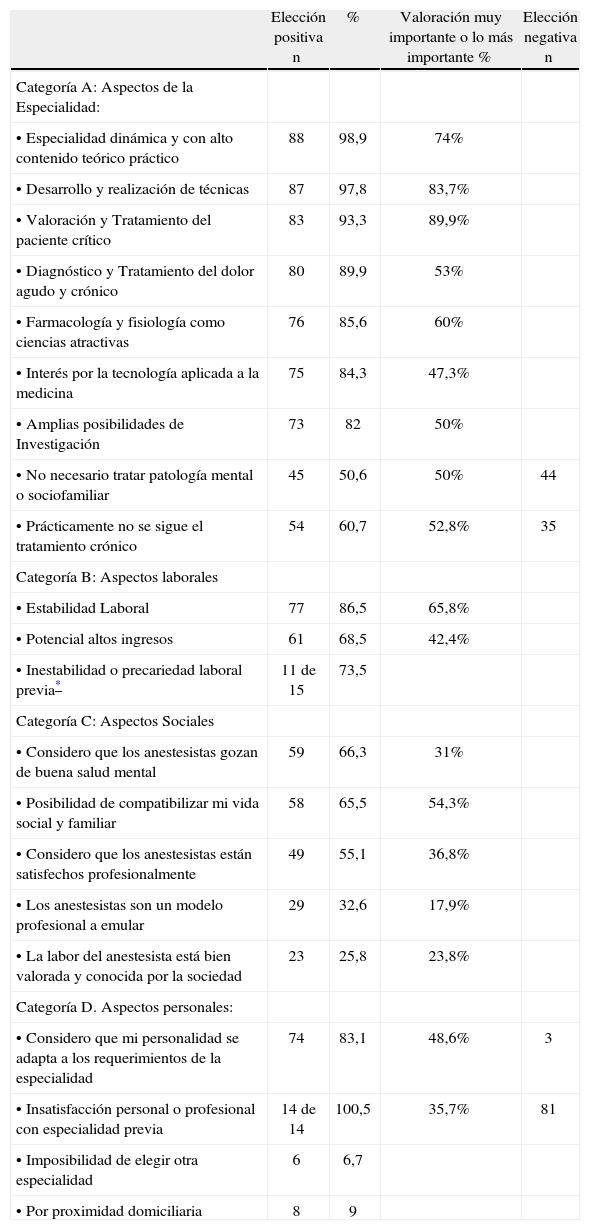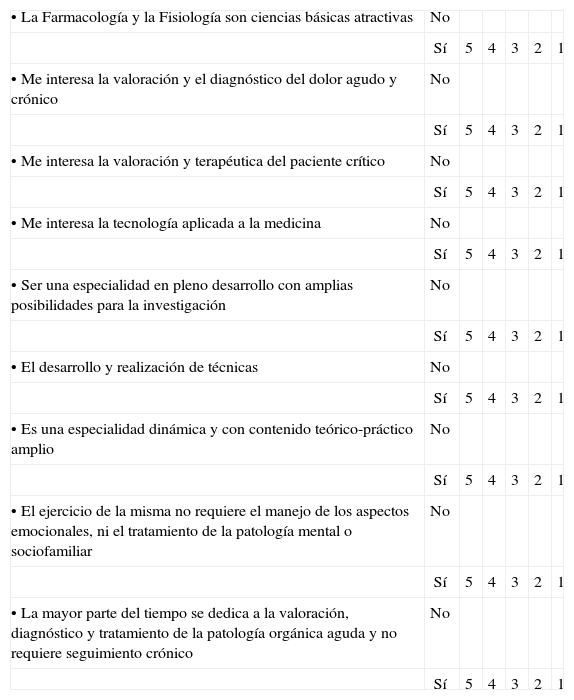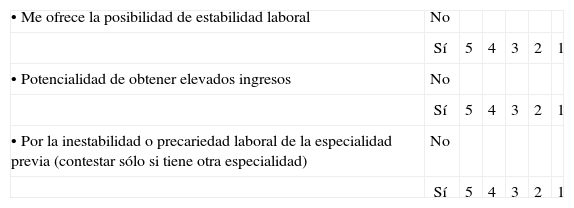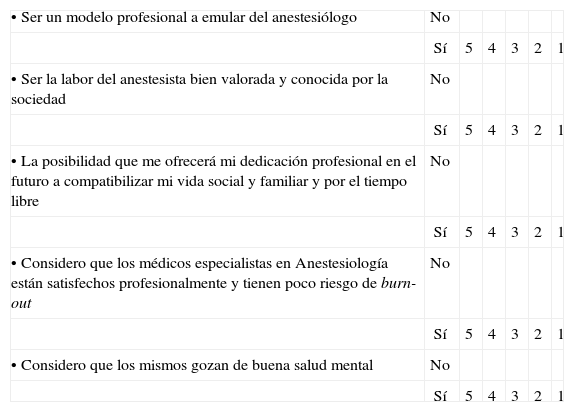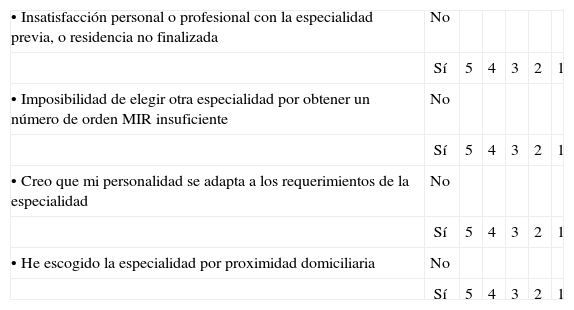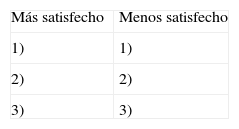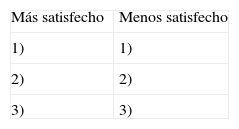El objetivo principal fue conocer las motivaciones que han determinado la elección de la especialidad en Anestesiología y Reanimación en la Comunidad de Madrid y determinar si el conocimiento o contacto previo con la especialidad contribuía a la elección de la misma, ver si existían diferencias en las motivaciones principales del grupo que elige la especialidad por primera vez, con respecto a los que lo hacen como segunda especialidad y saber cuáles eran sus expectativas y si éstas se habían cumplido, además de conocer el grado de satisfacción global.
Material y métodosEncuesta dirigida a todos los residentes de Anestesiología y Reanimación de la Comunidad de Madrid entre noviembre de 2008 y febrero de 2010. La encuesta incluía datos demográficos, especialidad previa, contacto pregraduado, motivos de elección (técnicos, sociales, laborales, satisfacción obtenida y expectativas cumplidas).
ResultadosSe obtuvieron 89 encuestas válidas (35% de repuestas). Los aspectos más frecuentemente valorados fueron: el desarrollo y realización de técnicas (97,8%), el concepto de especialidad dinámica y con amplio contenido teórico práctico (98,9%), la valoración y el tratamiento del paciente crítico (93,3%). Asimismo estas tres razones las consideraron entre importantes y muy importantes en la valoración cuantitativa por la mayoría de los encuestados, siendo lo más importante para el 55,8% la realización y desarrollo de técnicas. El 100% de los que tenían especialidad previa, se definieron insatisfechos. El conocimiento previo de la especialidad establece diferencias en las motivaciones e intereses, como el interés por el dolor (p=0,037) o el modelo profesional a emular (p=0,014).
ConclusionesLo que más atrae a los residentes es el contenido teórico práctico, la posibilidad de realizar técnicas y la valoración y tratamiento del paciente crítico. Los residentes con otra especialidad están menos satisfechos y sus expectativas menos cumplidas que el resto.
Our main objective was to determine the reasons why residents chose to specialize in anesthesiology and postoperative critical care in the autonomous community of Madrid. We also wished to know if prior contact with this specialty influenced their choice, if those who chose it as a second specialization differed from those who were doing a first residency, what expectations the residents had and if they had been met, and if they were satisfied with their training.
Material and methodsSurvey of all residents in anesthesiology and postoperative critical care medicine in the community of Madrid between November 2008 and February 2010. The questionnaire items covered demographic data, prior specialty training, undergraduate contact with the specialty, reasons for choosing this specialty (technical, social, or employment-related interests), satisfaction, and expectations met.
ResultsWe received 89 valid questionnaires, a sample that represented 35% of the residents. The reasons expressed most often were learning and performing techniques (97.8%); that the specialty was dynamic, with broad theoretical and practical content (98.9%), and an interest in providing critical care (93.3%). These 3 reasons were considered important or very important by most of the respondents; 55.8% considered that learning and carrying out techniques was the most important reason. All the respondents who had previously done specialty training said they were dissatisfied. Prior contact with the specialty was associated with having different reasons and interests, such as an interest in pain (P=.037) or emulating a role model (P=.014).
ConclusionsThe specialty’s mix of theoretical and practical content and the chance to perform techniques and provide critical care are the features the residents find most attractive. Residents who already have another specialty are less satisfied and their expectations are not as well met.
Artículo
Comprando el artículo el PDF del mismo podrá ser descargado
Precio 19,34 €
Comprar ahora







